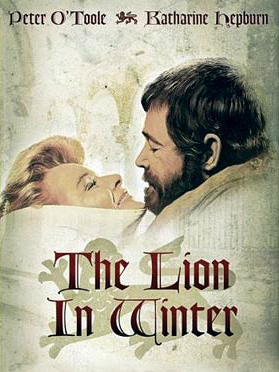 Anne Marie here to celebrate the holiday with a furious monologue from my favorite Christmas movie. "Christmas movie" is a terrible description for Anthony Harvey's 1968 film The Lion in Winter, though it is technically correct. This is a political thriller of one very long Christmas night between Henry II of England (Peter O’Toole), his wife Eleanor of Aquitaine (Katharine Hepburn), and their three conniving sons as they battle over who will be the next King of England.
Anne Marie here to celebrate the holiday with a furious monologue from my favorite Christmas movie. "Christmas movie" is a terrible description for Anthony Harvey's 1968 film The Lion in Winter, though it is technically correct. This is a political thriller of one very long Christmas night between Henry II of England (Peter O’Toole), his wife Eleanor of Aquitaine (Katharine Hepburn), and their three conniving sons as they battle over who will be the next King of England.
And you thought your family was dysfunctional.
While we've written extensively about Katharine Hepburn's Oscar-winning performance in The Lion in Winter, this Monologue Monday before Christmas I'd like to shine the spotlight on Peter O'Toole's underawarded performance as the manic, magnificent Henry II of England. The movie is filled with great dialog for the Irishman to chew on, but O'Toole's best (or biggest) moment comes midway through the film, after a midnight meeting with the King of France.
A eulogy for a king after the jump...

King Henry has just discovered his sons and heirs have committed treason. Up to this point, Henry's reaction to their plotting has been affection and anger, but their attempts to dethrone him have finally gone too far. Henry’s immediate reaction is stunned, introspective silence.
The camera stays focused in tight closeup on O'Toole for almost the entirety of Henry's monologue. He begins speaking uncharacteristically quietly. Up to this point, Henry has bellowed, bitten, plotted, and generally run roughshod over any obstacle he confronts with the fire and eloquence of a man who’s used to power. He begins this monologue eloquently as well, but his anger slowly builds, and threatens to overwhelm him at any moment:
“My life, when it is written, will read better than it lived. Henry Fitz-empress, first Plantagenet, a king at the ablest soldier of an able time. He led men well, he cared for justice when he could, and ruled for years a state as great as Charlemagne's. He married out of love a woman out of legend. Not in Alexandria or Rome or Camelot has there been such a queen. She bore him many children, but no sons.”
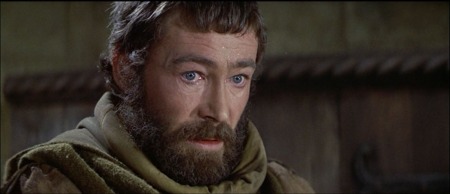
Henry's barely-controlled fury escalates. Preserving his legacy has always been the king's goal, so his wild-eyed decision to disown his sons kills him as a father and a monarch, obliterating the two seemingly uncrushable foundations of his identity. He violently wakes from introspection to yell curses at his children.
“King Henry had no sons. He had three whiskered things, but he disowned them.”
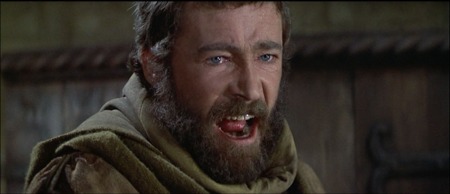
“You're not mine! We're not connected! I deny you! None of you will get my kingdom. I leave you nothing! And I wish you plague! May all your children breech and die!”
Henry escapes the room. He staggeres through the castle. The tight closeup that allowed the audience to witness his struggle now widens to medium and long shots, showing the physical toll that this encounter has taken on the King as he leans against walls and stumbles down stairs.
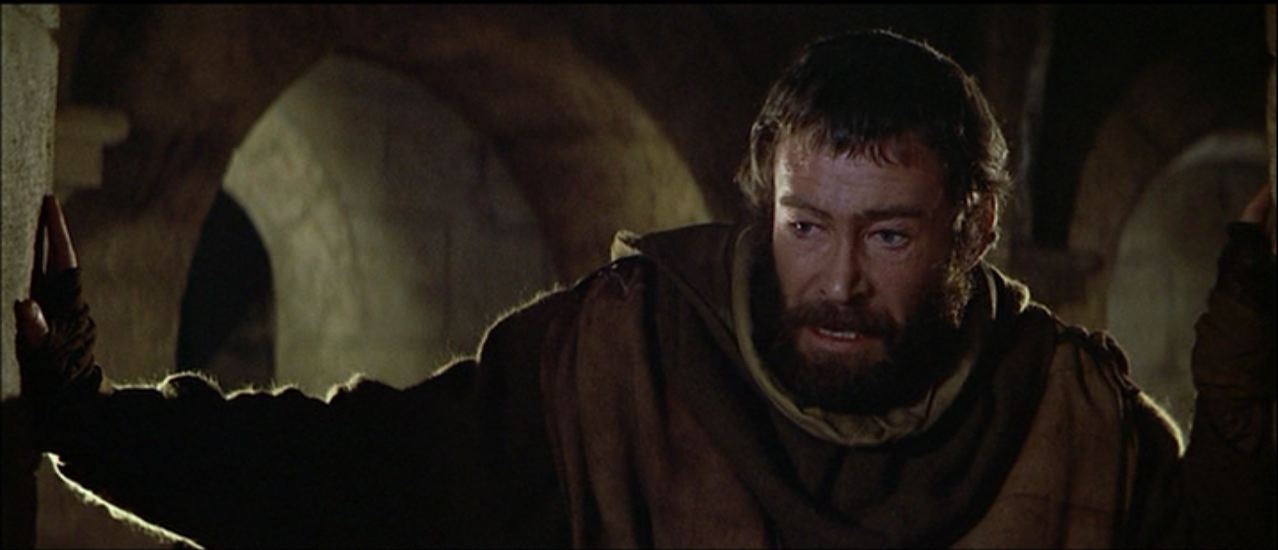
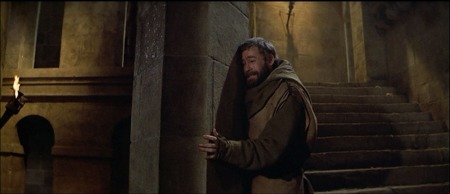
My boys are gone. I've lost my boys. You dare to damn me, do you? Well, I'll damn you back. Goddamn you!"
My boys are gone. I've lost my boys. Oh, jesus. All my boys.”
This year we lost Peter O'Toole -- among other giants: it'll be a rough In Memoriam at the Oscars -- but his eulogy was never as grim as the one envisioned by his character in The Lion in Winter. On the contrary, this grand actor's life was well-lived and beautifully performed. He was, to borrow a line from The Lion in Winter, a marvel of a man.
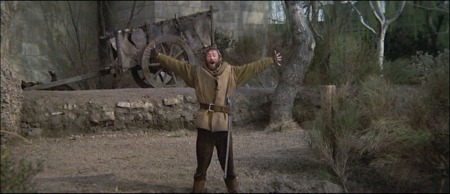
You know, I hope we never die. Do you think there’s any chance of it?